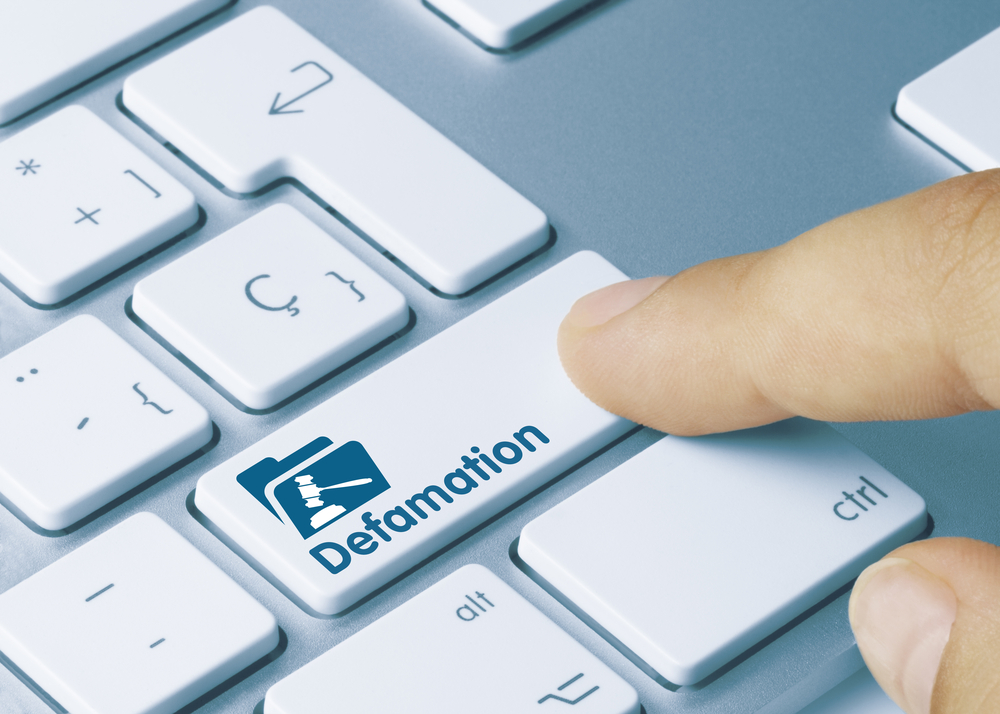 In a world where communication has become instantaneous and widespread, the collision between freedom of speech and the potential harm caused by defamation has become increasingly relevant. The right to express oneself freely is a fundamental pillar of democratic societies, but it must be balanced with the responsibility to avoid spreading false and damaging information about others. In this blog post, we will explore the delicate balance between defamation and freedom of speech, and the importance of understanding both rights and responsibilities in today's digital age.
In a world where communication has become instantaneous and widespread, the collision between freedom of speech and the potential harm caused by defamation has become increasingly relevant. The right to express oneself freely is a fundamental pillar of democratic societies, but it must be balanced with the responsibility to avoid spreading false and damaging information about others. In this blog post, we will explore the delicate balance between defamation and freedom of speech, and the importance of understanding both rights and responsibilities in today's digital age.
What Is Defamation?
Defamation refers to the act of making false statements that harm the reputation of an individual or an entity. This can take two forms: slander, which involves spoken defamatory statements, and libel, which involves written or published defamatory statements. Defamation laws aim to protect individuals from the unjust harm caused by false and damaging information.
It is important to note that opinions are generally protected under freedom of speech, as they are subjective expressions and not assertions of fact. Distinguishing between a false statement and a protected opinion can be more difficult than it sounds, however. For example, stating that you didn’t like a restaurant’s burgers, and you thought they tasted chalky, would be a protected opinion. However, stating, “This restaurant’s burgers are made with chalk,” as if it were a fact, could be viewed as defamation.
Freedom of Speech: A Pillar of Democracy
Freedom of speech is a cornerstone of democratic societies, allowing individuals to express their thoughts, ideas, and opinions without fear of censorship or retribution. It provides a platform for open discussion, the exchange of diverse perspectives, and the pursuit of truth. Protecting freedom of speech is vital for maintaining a healthy democracy, as it fosters an environment of transparency, accountability, and progress. Even if opinions are unpopular or expressed in a manner that some may view as offensive, it’s important that attempts to protect one’s business or personal reputation do not infringe on others’ freedom of speech.
The Challenges of the Digital Age
The advent of the internet and social media platforms has revolutionized the way we communicate, opening up new avenues for expression and connection. However, this digital landscape has also posed significant challenges in relation to defamation and freedom of speech. The instantaneous and viral nature of online communication means that false information can spread rapidly, causing irreparable damage to an individual's reputation within minutes. Additionally, the relative anonymity provided by the internet can embolden individuals to make defamatory statements without facing immediate consequences.
Balancing Rights and Responsibilities
The delicate balance between defamation and freedom of speech requires a nuanced understanding of both rights and responsibilities. While freedom of speech should be protected, it is not an absolute right. It must be exercised responsibly, with consideration for the potential harm caused by spreading false information. As responsible citizens, it is our duty to engage in thoughtful and respectful discourse, backed by accurate information.
Defamation Laws and Legal Remedies
Defamation laws vary from country to country, but they generally provide a legal framework for individuals to seek redress when their reputation has been unjustly harmed. To prove defamation, the injured party must typically demonstrate that the statements made were false, published to a third party, and caused harm to their reputation. For businesses, you may also need to demonstrate that the harm to your reputation would directly damage your business in a measurable, monetary way. Legal remedies for defamation can include monetary damages and injunctive relief, such as a court order to cease further publication of the defamatory statements.
Consulting an Expert
If you find yourself in a situation where your reputation has been damaged by false and damaging statements, it is crucial to consult with a legal expert who specializes in defamation cases. The Harr Law Firm has a team of experienced defamation attorneys who can provide you with the guidance and support needed to navigate the complexities of defamation laws. Contact us today to schedule a consultation and discuss the specifics of your case.
Defamation and freedom of speech are two crucial rights that must be carefully balanced in today's interconnected world. While freedom of speech is essential for fostering open dialogue, it comes with the responsibility to avoid spreading false and damaging information. Understanding the nuances of defamation laws and seeking legal recourse when necessary is vital for protecting one's reputation. Remember, the Harr Law Firm is here to assist you if you find yourself in a defamation case. Contact us today to schedule a consultation and take the necessary steps to defend your reputation.